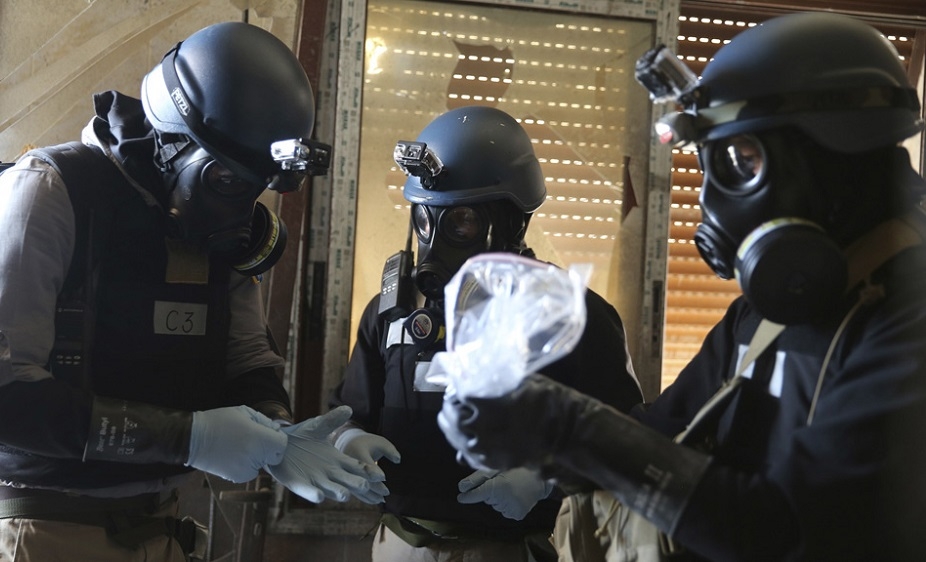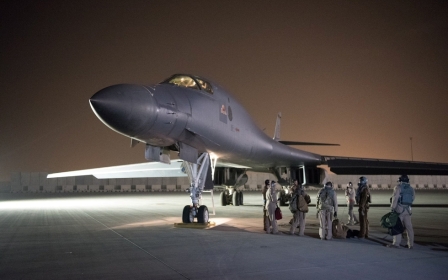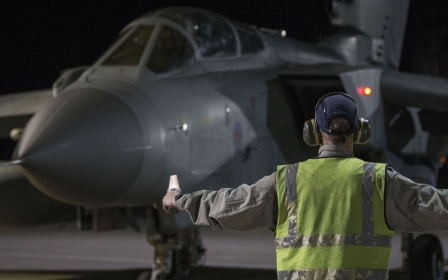Chemical weapons inspectors' visit to Syrian attack site delayed

A visit by chemical weapons inspectors to the site of a suspected gas attack in Syria was delayed on Monday, British and Russian officials said, as Western powers and Russia traded accusations in the aftermath of retaliatory US-led missile strikes.
Organisation for the Prohibition of Chemical Weapons (OPCW) inspectors arrived in Syria on Saturday, but have so far been unable to access the town, the UK delegation said, adding that "unfettered access (was) essential".
Russia's foreign ministry said the delay was due to US air strikes, carried out in response to the suspected attack on Douma on 7 April, which targeted suspected chemical weapons sites belonging to the government of the Syrian president, Bashar al-Assad.
The Kremlin meanwhile said it considered "such accusations against Russia to be groundless, adding that Moscow was in favour of "an impartial investigation".
The US envoy to the OPCW said he believed Russia may have tampered with the sites to frustrate any forthcoming examinations.
"It is our understanding the Russians may have visited the attack site," Kenneth Ward was reported as saying by Reuters.
"It is our concern that they may have tampered with it with the intent of thwarting the efforts of the OPCW fact-finding mission to conduct an effective investigation."
The statements came as the OPCW met for a closed-door meeting in Dutch city of The Hague.
A diplomatic source told Reuters evidence may have been removed while inspectors negotiated access with Syrian authorities.
Russia blames 'Anglo-Saxon provocation'
Syria and Russia deny chemical weapons were used in the offensive that captured Douma, a former rebel-held territory in Eastern Ghouta, east of Damascus, earlier this month.
Russia has said that accounts of the attacks were faked or were a "false-flag" operation by Syrian rebels, and at the weekend said the reports of a chemical release was part of an "Anglo-Saxon provocation".
Russian state broadcaster RT on Monday released pictures of what it claimed was a chemical weapons lab in Eastern Ghouta - which experts told the Bellingcat open source investigations group show nothing of the sort.
The UK dismissed as "ludicrous" the suggestion from Russia that it was behind the Douma chemical weapons attack.
They have even suggested that the UK was behind the attack. That is ludicrous
- Peter Wilson, UK representative to OPCW
The UK representative at the OPCW, Peter Wilson, said: "Russia has argued that the attack on Douma was somehow staged, or faked.
"They have even suggested that the UK was behind the attack. That is ludicrous," he said.
"The attack on Douma was not reported by just a sole source in opposition to the regime. There are multiple eye witness accounts, substantial video footage, accounts from first responders and medical evidence."
He said Moscow was "spreading conspiracy theories and misinformation" to undermine the integrity of the OPCW's fact-finding mission to Syria.
The United States, Britain and France fired more than 100 missiles at three alleged chemical weapons facilities on Friday, angering Syria's military backer Moscow, which threatened to retaliate.
The US president, Donald Trump, said the strikes had accomplished their aim of undermining efforts by the Syrian government to produce and use chemical weapons again in violation of the Chemical Weapons Convention.
Despite the strikes, Trump still wants to bring the US troops in northern Syria home, the White House said on Wednesday.
But spokeswoman Sarah Sanders said he had not set a timeline for a pull-out. Trump was also willing to meet Russian President Vladimir Putin, she added, while indicating that no such encounter was imminent.
Middle East Eye propose une couverture et une analyse indépendantes et incomparables du Moyen-Orient, de l’Afrique du Nord et d’autres régions du monde. Pour en savoir plus sur la reprise de ce contenu et les frais qui s’appliquent, veuillez remplir ce formulaire [en anglais]. Pour en savoir plus sur MEE, cliquez ici [en anglais].




